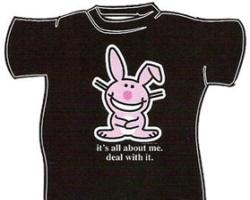There are vast differences between the generations, but the psychological differences between the 1950’s Baby Boomers and today’s Mellinnials are near polar opposites. (Story continues below.)
Discussion Questions:
1.) Arguably, cultural and societal factors, such as the Great Depression, 9-11 and other world events significantly impact the way people rear children, thereby influencing future generations and trends. If asked, could your students chart their general perceptions of Americans’ overall attitude regarding abilities and roles in society throughout the past seven decades? How do their individual perceptions of each generation’s attitudes differ?
2.) According to the article, some people see benefits to a high self-esteem while others seem to equate it with arrogance. Are the two the same? Have your students discuss why they are or are not.
3.) The folllowing passages refer to the “self” in some way:
Whereas Boomers are likely to profess having been unable to please their parents, Millennials are supremely confident of their abilities in the workforce and as mates, as well as express a higher degree of satisfaction.
While some psychoanalysts say the latter generation is headed for a rude awakening — and depression — when their ego bubbles are punctured by the needles of reality, others say high self-esteem in one’s youth protects against depression later in life, adding that having goals and an optimistic attitude leads to greater success. Still others say Millennials’ egos cause problems for others in their environments because “Millies” are more accustomed to praise and too fragile to handle criticism.




